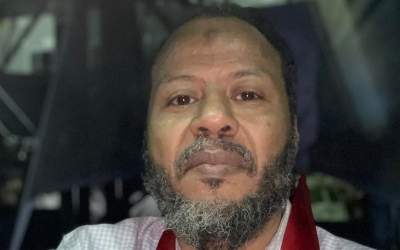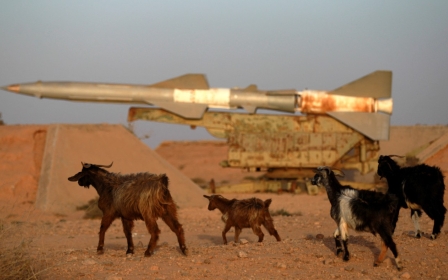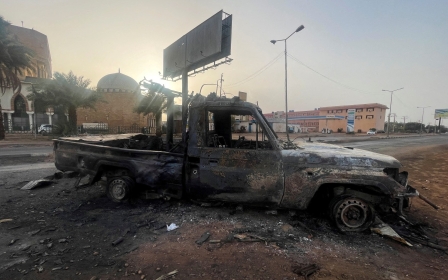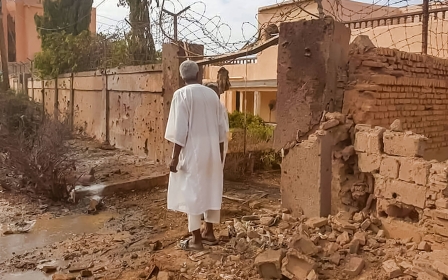Sudan's foreign ministry rejects deployment of African peacekeeping force

Sudan's foreign ministry has dismissed a regional African summit's bid to deploy peacekeeping forces to protect civilians as the country enters its fourth month of armed conflict.
The ministry, which is attached to the Sudanese army led by military leader General Abdel Fattah al-Burhan, had turned down calls from the Intergovernmental Authority on Development (IGAD) to deploy a peacekeeping mission.
The decision on Wednesday dealt a blow to efforts to resolve the armed conflict between the Sudanese army and the Rapid Support Forces (RSF), which started in mid-April.
IGAD is an East African regional body that called on all Sudanese parties on Monday to start new peace negotiations during a summit in Ethiopia's capital of Addis Ababa. IGAD made a bid to deploy the joint East Africa Standby Force (EASF) to protect civilians and provide humanitarian aid.
The Sudanese army boycotted the IGAD mediation efforts on Monday and rejected the call by IGAD on Wednesday for Sudan to accept peacekeepers.
Khartoum accused Kenya, which spearheaded the bid for a peacekeeping mission, of sheltering the RSF, the paramilitary group seeking to grab power from the military in Sudan.
The ministry said it was displeased with IGAD's approach, suggesting it might reconsider its membership of the organisation.
“The disrespect of IGAD towards the opinions of its member states will cause the Sudanese government to rethink the utility of its membership in the organisation,” the foreign ministry said.
“The Sudanese government rejects the deployment of foreign forces in Sudan and will consider them enemy forces."
Failed peace talks
Kenya's efforts to bring peace to Sudan are the latest since talks in Jeddah were suspended in June following a series of ceasefire violations.
The International Organisation for Migration estimates that the conflict had uprooted three million people, 2.4 million of them displaced internally, and more than 730,000 crossing into neighbouring countries.
Almost 1,000 civilians have been killed, according to the United Nations, although the real number may be far higher.
Previous mediation plans to resolve the power struggle failed, and the Sudanese army and the RSF remain locked in a stalemate, attempting to tip the balance of battles.
The foreign ministry described comments by the presidents of Ethiopia and Kenya about Sudan's power vacuum during the summit on Monday as "a violation of the country's sovereignty".
“Sudan expresses its surprise at the statements of the Ethiopian prime minister that there is a vacuum in the leadership of the state, which is interpreted as a lack of recognition of the current leadership of the state,” the statement said.
On Tuesday, a shooting attack in Sudan's West Darfur city of el-Geneina killed at least 40 civilians.
Human Rights Watch reported that the attack was ethnically motivated against the Masalit community.
The city of el-Geneina in West Darfur was a battleground for attacks by RSF and allied Arab militias against the non-Arab Masalit people, who make up the largest community in the city.
“The accounts of those who survived recent attacks in West Darfur echo the horror, devastation, and despair of Darfur 20 years ago,” said Jean-Baptiste Gallopin, HRW senior crisis and conflict researcher.
Since May, thousands of people have fled West Darfur to the nearby border with Chad.
Egypt's bid to hold a summit to resolve the power conflict in Sudan on Thursday was welcomed by the army, which is close to Cairo.
Middle East Eye propose une couverture et une analyse indépendantes et incomparables du Moyen-Orient, de l’Afrique du Nord et d’autres régions du monde. Pour en savoir plus sur la reprise de ce contenu et les frais qui s’appliquent, veuillez remplir ce formulaire [en anglais]. Pour en savoir plus sur MEE, cliquez ici [en anglais].





